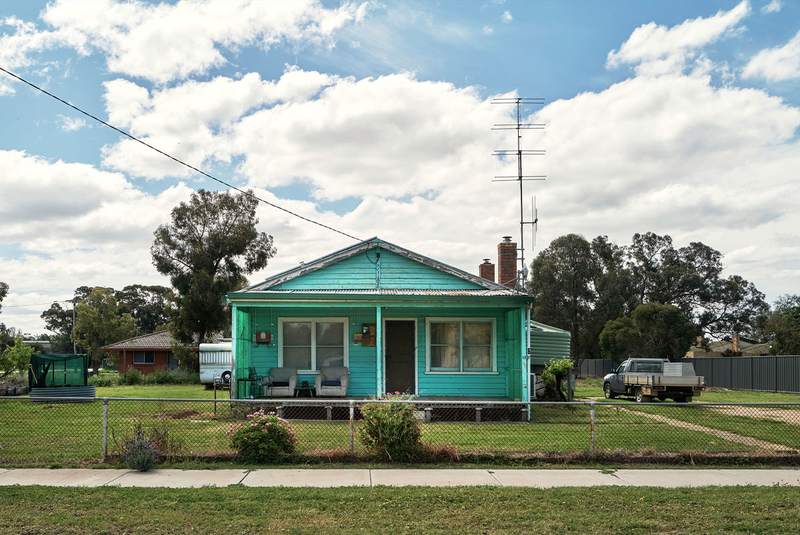Losing a loved one is a profoundly upsetting event. So, any additional stress as an heir can make the grieving process even more difficult.
Because of this, you’ll want to simplify your responsibility as an heir. A refinance can allow you to take ownership over the deceased’s estate and provide you with extra funds. That money can then be used to buy out the remaining heirs, avoiding potential disputes and other complications.
Here’s how to refinance an inherited property to buy out heirs and make your life easier.
What Happens When You Inherit A Property With A Mortgage?
As an heir to an estate, you don’t have control over how you receive your inheritance. Instead, you receive funds based on the amount of the estate left to you.
In contrast, only a judge or an executor of the estate can decide how to divvy funds. If no heir is specified, if part of the estate is real property, they have the ability to put the mortgage in their name with qualifying credit and income.
But if no one is the executor, the heirs have to agree on how to manage the property. And that’s important since finding the right solution can help avoid foreclosure on the property. That’s where a mortgage refinance can come in. If you want to own the property outright, you can use the funds from a mortgage refinance to buy out the other heirs.
Compare Refinance Offers From Verified Lenders:
How To Refinance To Buy Out Multiple Heirs
Refinancing can provide you with the funds to buy out other heirs. Thus, allowing you to take ownership and responsibility for the real estate. Here are the steps you should take to make that happen:
Review Estate Plan With Co-Heirs
The first step you’ll need to take is to group up with the other beneficiaries. Together, you’ll have to review the estate plan and discuss your potential refinancing options.
This process is crucial to avoid future disputes. But estimating your borrowing needs will require several numbers. For example, you need to calculate how much each heir will receive and determine the property value, possible expenses, and the necessary buyout amounts.
Review Due-On-Sale Clause
Generally, mortgages have a due-on-sale clause, otherwise called an acceleration clause. This clause requires immediate repayment of the leftover loan balance when the property is transferred or sold. As a result, it protects lenders from buyers assuming a mortgage with a low-interest rate or terms they would not qualify for.
Transfer Mortgage Deed
At this point, you’ll need to transfer the mortgage deed or more simply, mortgage. But you’ll have to continue making payments on the mortgage during this transitionary period to prevent foreclosure.
It may be possible to add your own name to the property deed and take on the current repayment terms. However, you will need to contact the mortgage servicer for the appropriate information.
Calculate And Complete Refinancing Process
A mortgage refinance will require a new monthly payment, interest rate, and payment schedule. You’ll need to calculate an estimate of what that new regular payment will look like. You can save money on interest if you refinance at a time when mortgage rates are comparatively lower than the current rate.
After you apply for the refinance, your lender will require a home appraisal. They use this to determine the home’s value and its available equity as a result.
Pay Out Each Heir
If you make the move for a cash-out refinance, you’ll receive a one lump sum payment. You can then use that payment to pay out any remaining heirs. Since the refinanced mortgage is under your name, you’ll be responsible for the mortgage payments from here on out.
Refinance Guide
Learn how refinancing can help you save money.
The Pros And Cons Refinancing For A Buyout
The overall results of a buyout will depend on your situation. However, here are some advantages and disadvantages that may impact your decision.
Pros
If you can get every heir to agree to a buyout, you can enjoy:
- Avoiding property disputes: Without a tenancy in common, you don’t have to worry about the other heir’s level of ownership. You have control over the property.
- A lower mortgage: Having a better credit rating than the previous owner can mean a lower interest rate on the mortgage.
- Later buyout issues: Dragging the process out can result in financial losses. People may be hesitant to agree to a buyout, especially if the property increases in value.
Cons
Every situation comes with its drawbacks, though. Refinancing can introduce these challenges:
- Inherited mortgage debt: If there is leftover debt on a mortgage, the mortgage company will want that paid. Otherwise, they may begin the foreclosure process. If you refinance the loan, you will have to cover the loan’s total amount, including possible debt.
- Credit limitations: Refinancing works best if you have a strong credit score. If you don’t have a qualifying score, you may not be able to do a buyout.
- Mortgage limitations: Some mortgages can be difficult to refinance, like a reverse mortgage.
- Fees: Refinancing a mortgage comes with its fees. You need to decide how to split responsibility for these fees before paying the other heirs through a buyout.
Refinancing Alternatives
Some families may be fine with splitting the inheritance. They find a way to negotiate responsibility for the property that makes everyone happy. But situations vary, and the heirs you work with may want a different deal. Here are two ideas to consider:
Sell The Property
One alternative is to simply sell the property for the highest price possible. Then, you divvy the proceeds among all of the heirs. This is likely the most direct solution for you if you don’t want to co-own the property with others.
Rent The Property
Another option is to act as a team with the remaining heirs and rent the property out. You may split the landlord duties or put a specific person in charge. Regardless, you and the other heirs can test out real estate investing, strengthening your investment portfolio. It also means a source of passive income for all of you. However, it may take more long-term work than other alternatives.
The Bottom Line
Refinancing an inherited real property to buy out heirs can take collaboration. All the heirs have to be on the same page otherwise you risk future disputes. Once everyone’s in agreement, you can move forward with refinancing, pay the others, and avoid foreclosure.
However, everyone’s situation is different. Therefore, you should do your own research to find the right solution for you. It may even be wise to discuss your options with a financial advisor.
Refinance Calculator
Get loan options at today’s interest rates that show what your new monthly payment could be. Just answer a few simple questions.

Ashley Kilroy
Ashley Kilroy is an experienced financial writer who writes for solo entrepreneurs as well as for Fortune 500 companies. She is a finance graduate of the University of Cincinnati. When Ashley isn’t helping people understand their finances, you may find her cage-diving with great whites or on safari in South Africa.












